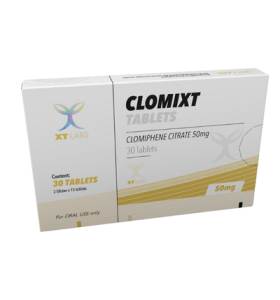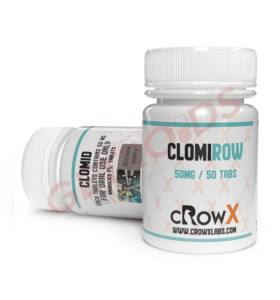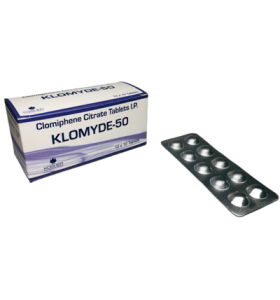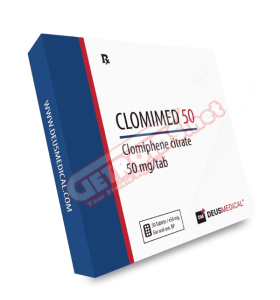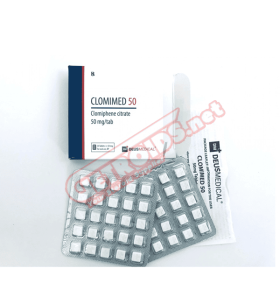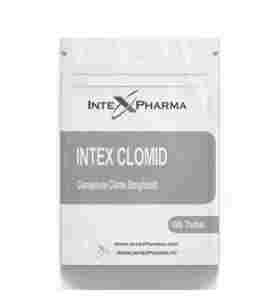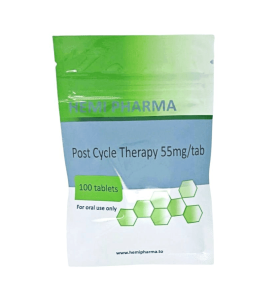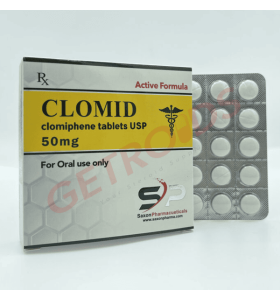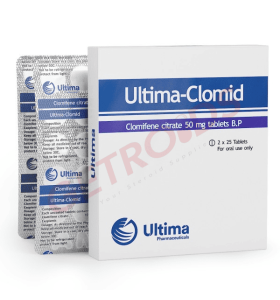Clomiphene Citrate Category Products
A common disorder in women is ovulatory failure which clomiphene citrate is commonly used to treat. Clomiphene is a selective estrogen receptor modulator (SERM) sold under the brand names Clomid and Serophene. It has been in wide-spread use since its introduction, most commonly due to the efficacy of this agent and low cost.
In this article we will discuss the uses, benefits and side effects of Clomiphene Citrate as welll at how it operates inside our bodies.
What is Clomiphene Citrate?
This medication is produced by a similar means as the naturally occurring hormone, estrogen and can cause amenorrhea. It acts on the hypothalamus, a part of the brain that controls ovulation (the release of an egg) by causing more Follicle Stimulating Hormone (FSH), and Luteinizing Hormone to be produced. The oNly from it destined especially body hormone are ajanie sex MEN and WOMEN which causes the EMPRUNTER to import egg (ovulaitonr)
Clomid is used most often in women with ovulatory disorders who are having anovulation that results from PCOS or similar causes and will help to develop 1 no more than a few eggs, not many due to the ovaries releasing too many of them. It is also utilized on a restricted basis in men who have unexplained infertility and low (testosterone deficiency).
How clomophene citrate works?
Clomiphene citrate is an effective estrogen antagonist in other tissues, to oppose some of the negative feedback effects of endogenous and synthetic estrogens. The hypothalamus is good at sensing this absence of estrogen through clomiphene, so when you block the estrogen receptors with Clomid, the brain simply thinks there's not enough estradiol around. Following this GnRH acts at the pituitary to increase FSH and LH, also produced from cholesterol, which are required for gonadal sex hormone production.
FSH (Follicle-Stimulating Hormone): By targeting your ovarian follicles, which hold the egg to be released during ovulation.
This hormone called LH (Luteinizing Hormone) that causes to ovaries for having ovulation i.e., expulsion of egg from the mature follicle.
By elevating the levels of FSH and LH, clomiphene citrate makes it more likely that ovulation will occur and is thus an aid to around sixty-five per cent conception.
Uses of Clomiphene Citrate
1-Ovulation Induction
Clomiphene citrate is used primarily in women who do not ovulate regularly or produce an egg every month on their own. Most commonly recommended in women with PCOS, that may have menstrual irregularities and ovulatory disturbances.
2-Male Infertility
While you may have heard of clomiphene citrate being used in woman, it is also prescribed to men with low testosterone levels or poor sperm production. Clomiphene, by increasing the release of FSH and LH stimulates direct signaling in the testes to make more testosterone and sperm thereby improving male fertility.
3-Ovarian Reserve Testing
Sometimes it is used in a test to see how good the ovaries are at Sharpening, and who has no residence pass. This could help reveal how the ovaries react to stimulation and also indicate if a successful pregnancy is probable.
Perks Of Clomiphene Citrate
High Success Rate
Research has shown that up to 70-80% of women take clomiphene will ovulate, and between the six months one third or two thirds become pregnant.
Cost-Effective
Clomiphene is on the less expensive side of fertility treatments (in relative terms to more advanced therapy such as IVF), so it can be a potent tool for many people.
Non-Invasive
Because it is in a pill form that you take by mouth, Clomid is also very easy to use and can be taken over the course of several cycles (up to 6) without an invasive procedures used.
Adverse Reactions of Clomiphene Citrate
Although clomiphene is usually well tolerated, it can have adverse effects. These side effects can present differently in different individuals.
Hot Flashes
Hot flashes (a sudden warm feeling, especially around the face and neck) is one of the most common side effects of clomiphene. These are usually because fluctuation of hormonal imbalance and generally go away when the course is finished.
Vision Problems
A small number of patients will have some visual blurring, or see flashing lights from the clomiphene. Typically, these go away as soon you stop taking the meds.
Headaches and Nausea
You can also experience headaches and nausea, but these side effects are generally minor.
Safety Measures and Warnings
Syndrome of multiple ovarian cysts (PCO)
Clomiphene should be used with great care in women who ovulate - the PCOS category of patients, as they may have a greater tendency for developing OHSS. A lower dose is usually recommended initially to reduce the risk of side effects.
Liver Disease
Clomiphene should not be given to patients with liver disease because the drug is inactivated by hepatic metabolism, which might lead it to worsen a preexisting hepatopathy.
Prolonged Use
It is not used more than 6 cycles it can increase the further risk of ovarian tumors by using clomiphene. If they are trying to get pregnant and it has been six cycles with no results, then other treatments may be needed.
Conclusion
Clomiphene citrate is probably the most familiar, yet versatile of all fertility drugs. Due to the fact that its cost and efficacy, in terms of ovulation induction are good enough for it being a first-line treatment with couples attempting pregnancy. Their side effects are still problematic but can be avoided with proper monitoring and guidance.
The possibility of conceiving a child would greatly increase with the initiation hormone production through this drug and clomiphene citrate will give hope to many couples that dreamt of having children. But you should talk to a doctor before undergoing any kind of new glaucoma treatment because it might not be the best choice for your health, and there are some risks associated with using marijuana.
FAQS
1-What Does Clomiphene Citrate do?
It does this by competing for oestrogen receptor sites at hypothalamic level, causing the production of hormones that stimulate ovulation to increase (but still levels are low enough not to trigger expulsion [positive feedback] mechanism).
2-When Can You Expect to See Results From Clomiphene Citrate?
Ovulation usually occurs 5 to 10 days after a dose of Clomiphene, and many women will ovulate within the first few cycles.
3-Clomiphene Citrate side effects
Typical side effects include hot flashes, mood swings and bloating as well as experience rare complications : ovarian hyperstimulation which produces abdominal pain an fluid retention.






















